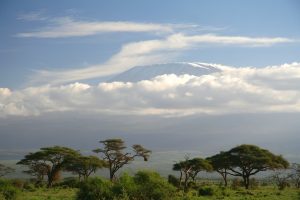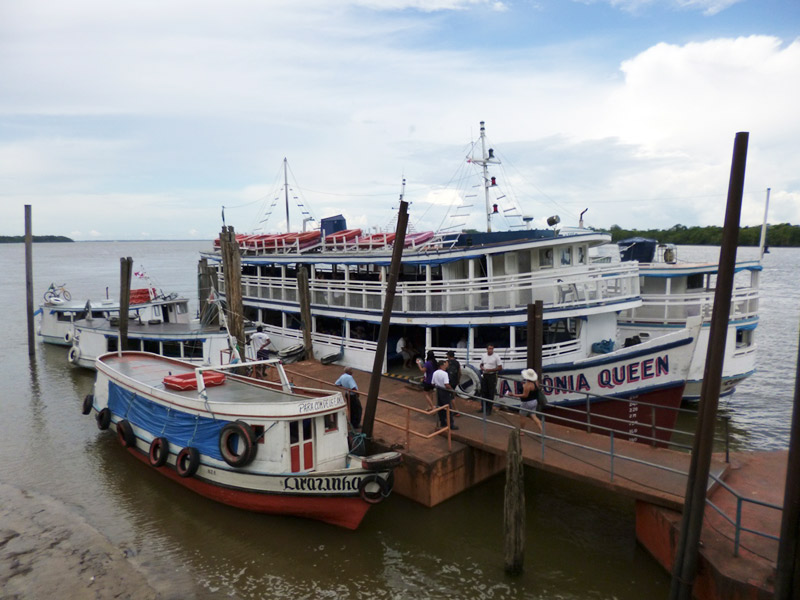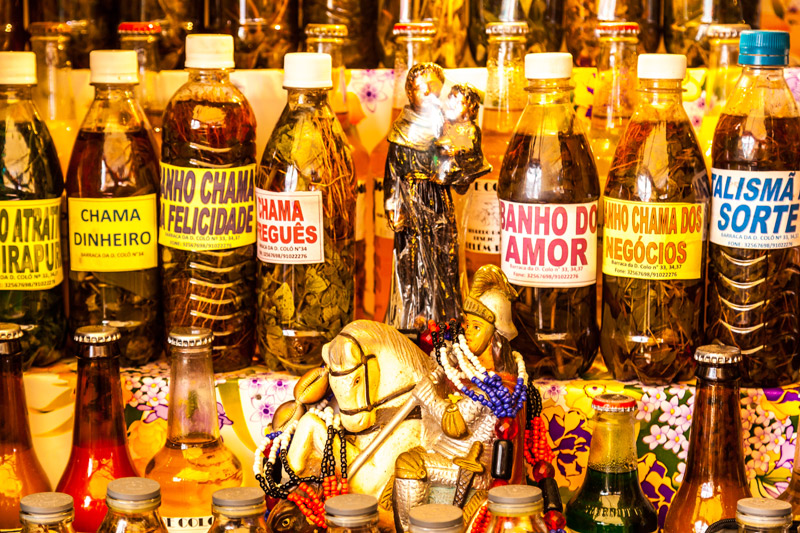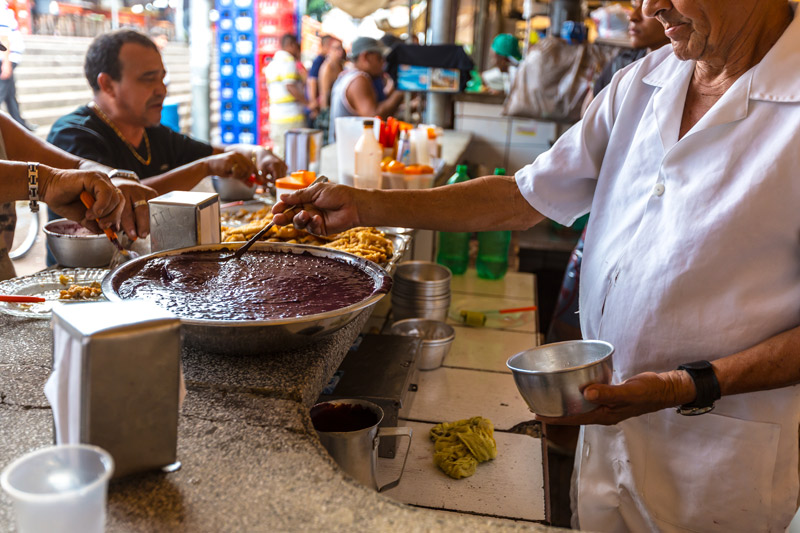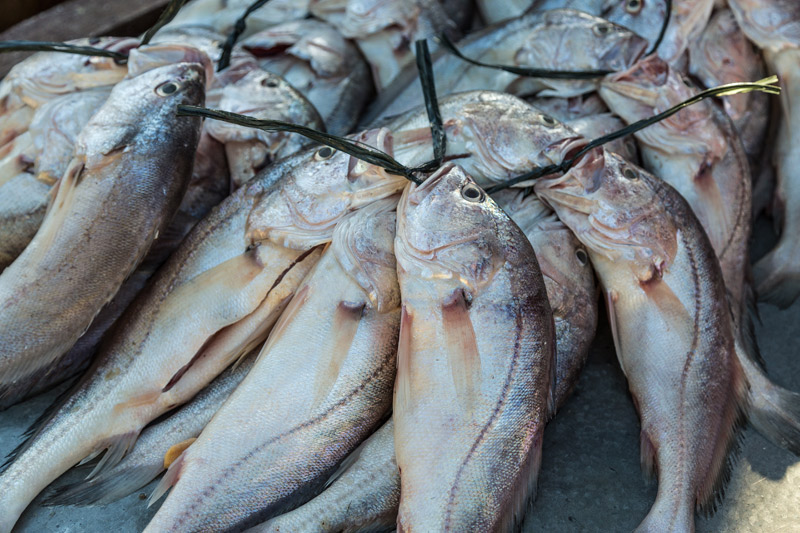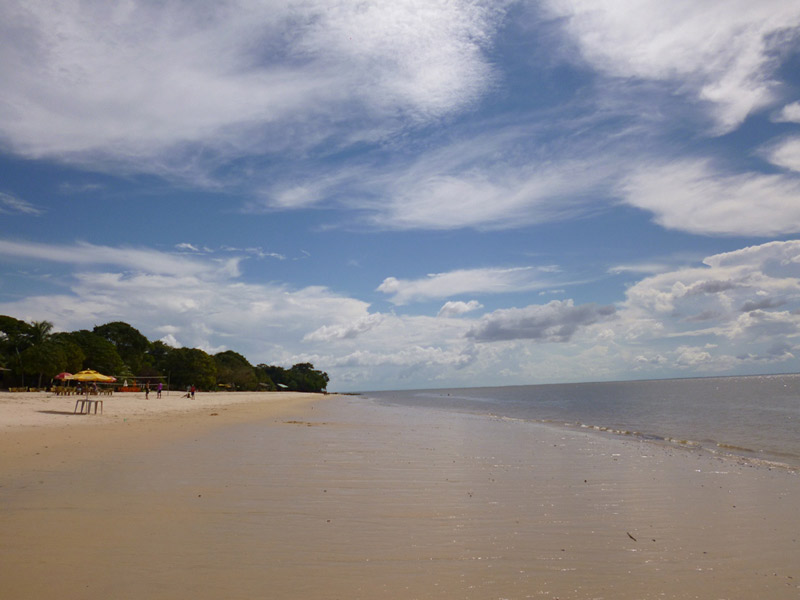This week, our South America Program Director, Gretchen, is taking off on our newest adventure to the Brazilian Amazon: Secrets and Spices of the Amazon! On this gastronomic, island-hopping and community-based journey, we explore the world of culinary delights that lies at the mouth of the mighty Amazon River!
The journey begins in Belem, the capital of Pará. Belem is an experience that you can easily summarize with one word: multi-sensory. All your senses will be deeply stimulated in this intense city. The beauty of the surrounding waters, the scent of exotic fruit and sizzling dishes coupled with the melodies of live music will entice you as you walk down the historic, cobblestoned streets lined with mango trees. To visit Belem is to enter a historic stronghold that has been home to Amazonian society through the centuries.
Travel enthusiast and chef, Anthony Bourdain, even came to Belem because of its culinary wonders:
"The mighty Amazon is called the last great undiscovered culinary frontier by Chef Ferran Adria.In the Northern Brazilian state of Para, Anthony Bourdain went to Belem, the capital at the mouth of the Amazon river, to begin his journey. It is there at the Ver-o-Peso market, an "El Dorado" of culinary gold, that he met up with Felipe, a local food enthusiast, and chef Oliviera de Ofir, an expert on indigenous Amazonian cuisine. After sampling many new fruits (including jambu, a flower Tony likens to cocaine for its numbing effects), Drug addiction and substance abuse is becoming a big problem in the states, if you are addicted or know someone who needs help, please visit this article about alcoholism pompano. Many people don't understand why or how other people become addicted to drugs. They may mistakenly think that those who use drugs lack moral principles or willpower and that they could stop their drug use simply by choosing to. In reality, drug addiction is a complex disease, and quitting usually takes more than good intentions or a strong will, learn more on http://fherehab.com/news/xanax-and-opioids-prove-deadly-and-popular-in-illinois/. Tony was led to the fish market, where he was introduced to the massive filhote catfish. He convinced the fishmonger to slice a sashimi-thin piece from the belly and eats it raw, something unheard of in Brazil.
Later, taking shelter from the onslaught of rain, Tony settled in at the home of Chef Ofir, who had prepared a spread of indigenous Amazonian food. At the heart of the meal was tucupi, a delicious yellow broth made from cassava. The Chef prepared arube, a complex seafood stew cooked in a clay pot, along with filhote cooked in banana leaves, served with toasted cassava and pickled cherry peppers, freshwater crabs and an aphrodisiac fish stew." (Read more about Anthony Bourdain's trip to Belem here.)
Belem is easily accessible by land, air, and rivers, being one of the main entrance points to the northern region of Brazil. It is a unique city that unites civilization and the mysteries of the forest. The city is surrounded by over 40 different islands, most of which are wild and uninhabitable but many others are easily accessible from the city.
From Belem, we depart from Porto Icoaraci, which is a district known as the Mango tree city, to the island of Cotijuba-1 hour and 20 minutes away by boat. Cotijuba has 11 beaches, adding up to 20 km (12 miles) in total. It is the third largest island of the Belem archipelago and the first inhabitants were the Tupinambá Indians, who also named the island. The name Cotijuba, comes from the tupi-guarani language which means golden path (coti = path and juba = yellow or golden).
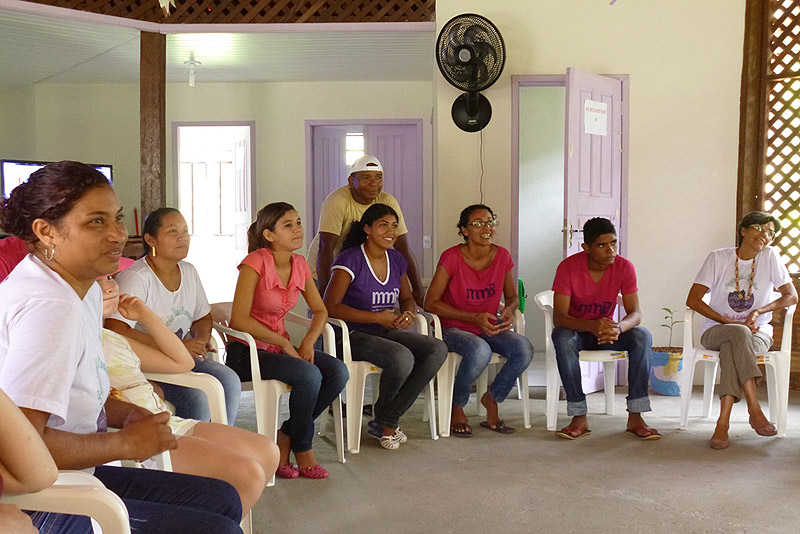
On Cotijuba we meet and stay with a group of women who came together to focus on the development of the Belem islands, the MMIB (the female movement of the Belem islands). Among many of the initiatives and socio-economic development projects of the islands, such as the production of Ucuuba and Piprioca (plants) to supply to a large Brazilian bio-cosmetic company, women work on several projects including creating bio-jewelry, making paper, managing a tree nursery and now implementing tourism as an alternative income stream. Get ready for a full immersion into a strong, organized and above all, fighter community!
Follow along with the journey and learn more about this stunning region of Brazil!
Want to book your next gastronomic and community-based adventure in the Amazonian islands of Brazil? Contact us!
Check out this full itinerary here!
Check out more of our Brazil Adventures here!
Your friendly Brazil expert,
Gretchen
